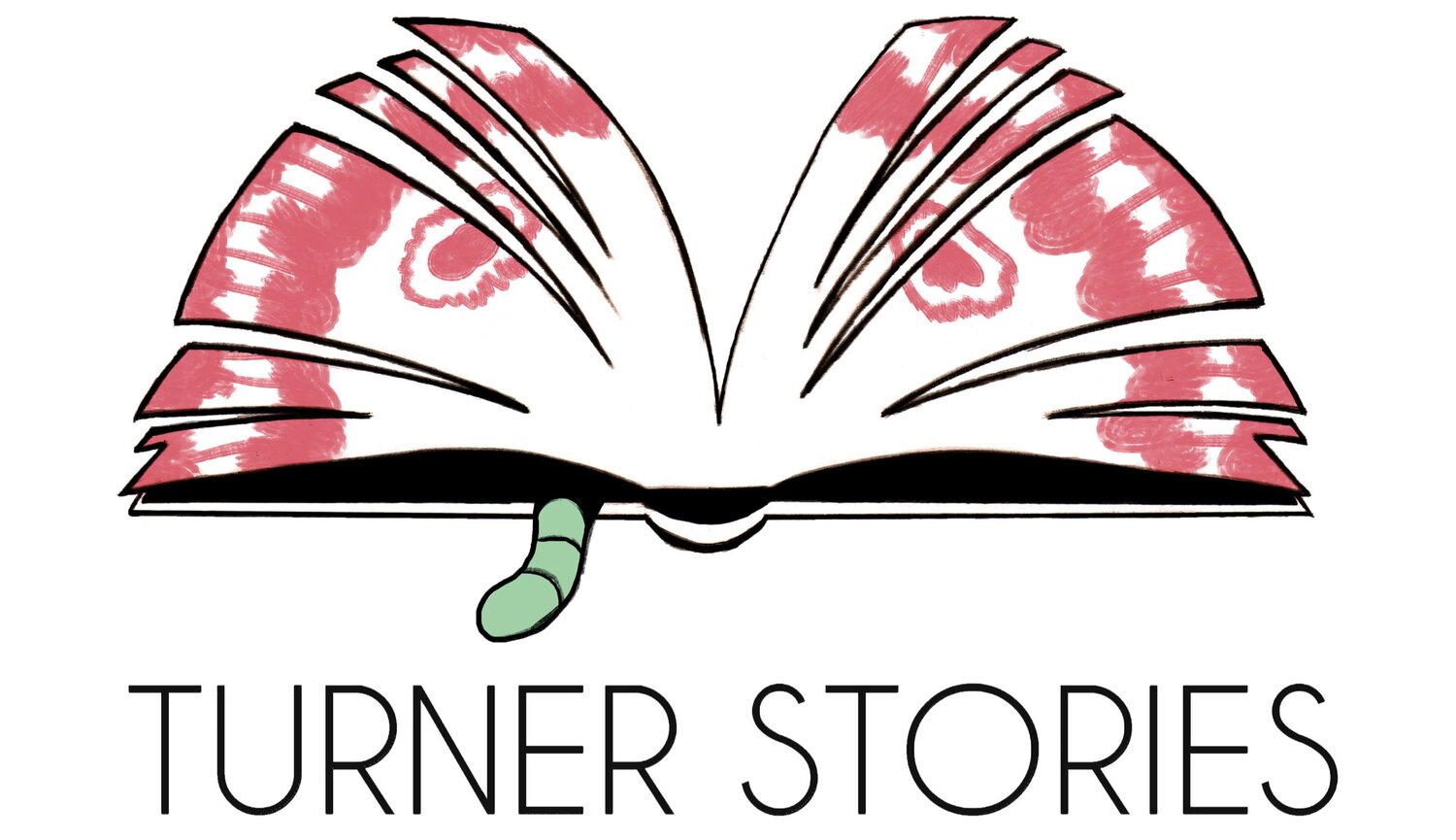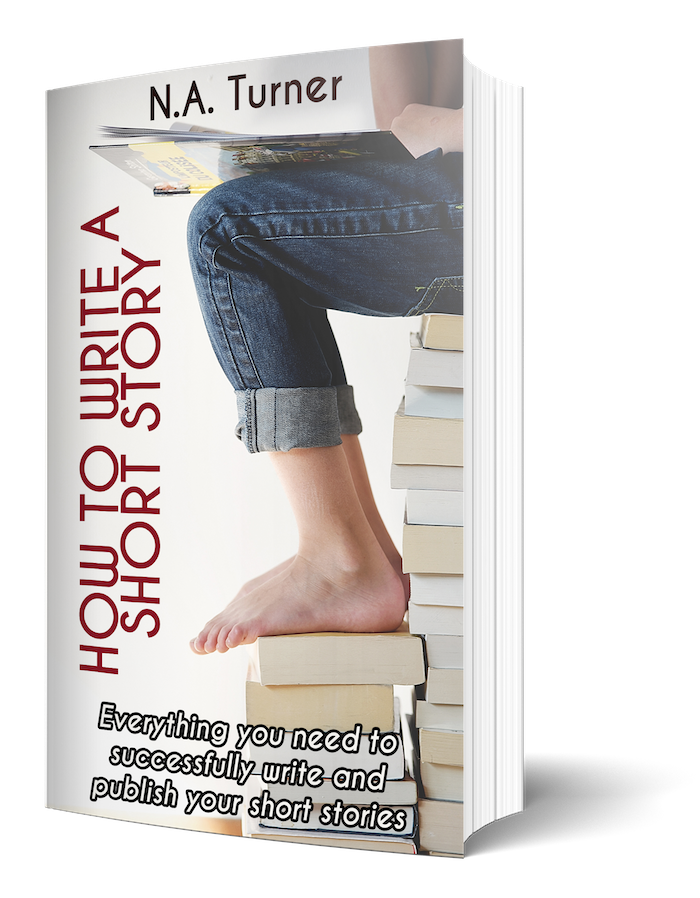How to Attract Readers for Your Short Stories
7 Tips on Marketing Your Work
Publish your writing in as many places as humanly possible and do as many different types of writing as well. A stand up comic doesn’t build an audience performing at home-they go anywhere there is a mic. Same with writers. - Ryan Holiday
Previously, I’ve shared the lessons that I’ve learned from the book ‘Perennial Seller’ by Ryan Holiday. In my opinion, this book is a must-read for any creator, but especially for writers.
Ryan touches upon the creative process, positioning your work, marketing your work and building your platform. Which is, I think, what most of us writers desire in the end. To reach as many people as we can with our stories.
But how can you attract readers for your short stories?
1. Start Your Own Blog With a Goal
First, I launched my own site, www.turnerstories.com. This is my base, however, I’ve published more on Medium since I discovered it.
I made my website with Squarespace. Ideal if you’re not very tech-savvy but still want to be able to manage your own site. They have beautiful templates and it works very intuitively. An alternative is to use a Wordpress template.
Before you try to build an audience and try to expand your reach, you must have a goal. How many people would you like to reach in a month? In half a year or a year? Write it down. Be realistic, but make it challenging enough for yourself to work hard at achieving it. Then, even if you will not make the exact mark, you’ve stretched yourself and have reached more people than with a save goal.
2. Publish on Medium
Fat chance you’re reading this on Medium. And I’d like to pay homage to this wonderful platform. Besides the fact that I learn a lot from other writers who publish here, I’ve been able to grow my reach even more than on my own website. The platform is probably the most writer-friendly AND reader-friendly out on the internet.
They even came up with a way to reward writers for their work. (Which is not a given for any writer).
Following people, interacting with authors about their stories, clapping, learning. I’m spending a lot of time on the platform. I’ve even connected with great authors and shared insights. Living in Amsterdam, the Netherlands, I’ve interacted with fellow writers across the world. Amazing!
You can tag your stories (obviously) to reach people who are interested in those subjects. If you write often and publish quality work, you can become a top writer on a topic. In addition, if you write quality work, Medium curators might recommend your story on certain topics. I’ve had that a couple of times with my short stories and I definitely noticed a bump in the number of readers.
You’re able to become part of a larger platform within Medium and publish through publications as well. If you want to check out the publications that are on Medium and see which ones are popular or might fit your writing, check Smedian.
New eBook:
How to Write a Short Story. A complete guide for $3.99 on Amazon.
3. Publications and Contests
Traditionally, if you’re a fiction writer, you try to get published through (literary) magazines with your short stories. Nowadays you still can but naturally, there has been a shift towards online publications. There are hundreds, even thousands of publications out there. For short stories, flash fiction, poetry, you name it. Some are directed towards a specific topic, some not. But where to try? Just check Writer’s Market. In their yearly book, tons of publications and their focus are listed.
Through websites like Submittable, you can upload your story to these publications. Most of them charge you for this and you’re never guaranteed to get published. Publications offer prices for your work if you get published. Sometimes thousands of dollars. I’ve tried this for a while, however, without any luck. I picked a handful of publications that fit the themes and styles of my stories. If you want to give this a go, I suggest you do your research first and then start submitting some of your stories.
4. Reach Out to Other Blogs
This I’ve done very diligently when I started out with my website. However, since I decided to explore Medium, recorded podcast episodes and started working on a novel, I haven’t had the time to keep reaching out to other blogs.
What I used to do with every story I published, was to make a list of blogs that touched upon a similar topic as the topics in one of my stories. Usually, blogs post non-fiction articles, but a similar message can be really powerful through fiction I think.
With my story ‘The Money Tree’ for instance, which is basically about greed, I made a list of finance blogs that were all about helping people to stay out of debt and manage their finances. I sent about 50 emails and got featured on two websites. One of them decided to include my story in their newsletter. I had 3,000 views that day. I kept refreshing my Google Analytics stats. I was so happy.
5. Try to Get Published on Other Writing Platforms
So you could publish on your own blog and on Medium, maybe even in (print) magazines, but there are more ways to spread your words!
Here’s a list of options I’ve stumbled upon, although I haven’t tried all of them:
Thrive Global: This one I am publishing on. Thrive Global is founded by the inspiring Ariana Huffington. On Thrive Global I publish a selection of mental health articles (mostly to do with how I try to manage my anxiety) as well as more philosophical stories. I’ve posted two of my short stories on Thrive Global. There are editors behind the website who determine if your stories are fit to be published.
Thought Catalog: I’ve read a lot of articles on this platform. It seems to be a great writing platform too, but I haven’t tried to get on it (yet).
Reddit: Very open, very interactive and highly topical. You can find threads on anything on there. I’ve posted a couple of stories there, just to try it out. I’ve gained some hundreds of views or website clicks through it. It has a high troll environment I’m not very keen on. Quora is similar, I guess. Although I haven’t posted anything on it.
Wattpad: One of the biggest self-publishing platforms for (short) fiction. I’ve posted one story, but to be honest, I haven’t really looked back. Like with Medium, it takes a lot of work to grow, but it could be very worthwhile. It’s all about allocating your time in a good way and keep doing things that work for you.
6. Social Media
I actively post on Twitter and Instagram. Twitter has proven to be the most interesting platform for me. It had resulted in the most visits to my work and the most engagement. Instagram is a close second although I find it more difficult to grow it.
Facebook is not working for me at the moment. Therefore, I chose to invest my time only on Twitter and Instagram, which is a great time saver. So, please choose and pick one or two platforms that work for you, otherwise, you spill your valuable time.
I try to grow my following by actively following people who like similar accounts to mine. I search for particular hashtags and like posts I find interesting. I comment on posts that intrigue me. I engage with people.
Another thing you should consider is to join Facebook groups about writing. I’m part of many Facebook groups with fellow (Medium) writers who support each other and read each other’s work.
Lastly, ever since I launched my website, I started building an email list. I have a couple hundred subscribers to sent my new stories to whenever I’ve published something new. I know I could spend more time growing that email list. I intend on doing that in the next few months.
7. Promote Your Kindle Ebooks
Once you’ve published a collection of your short stories on Amazon, you need to celebrate that huge accomplishment. However, now the real work begins. You have to sell your book.
Want to know how you can self-publish on Amazon? I wrote a step by step guide for you: I made a guide for that.
The thing is, I published a collection of short stories which is not necessarily a bestselling category. It’s difficult to sell any book, but I’d reckon selling short stories is even harder. It’s important to get the basics right. Use the correct tags and keywords in setting up your Kindle book. Then, use all the channels you have at your disposal. Make a promotion plan.
Promote your book on your site, link to it in your articles (if appropriate), post about it on social media, promote it in a newsletter or in Facebook groups. Basically, use all the platforms I mentioned in the sections above.
In addition, you can send your book to review sites. There are tons of sites out there that provide review services (both free and paid for). I used the website readers favorite. They reviewed my short story collection and send it in their newsletter, and posted it on their social platforms. It’s a great way to reach potential readers.
—
Good luck!
Join my email list to keep in touch.
Please note: this post contains affiliate links.


